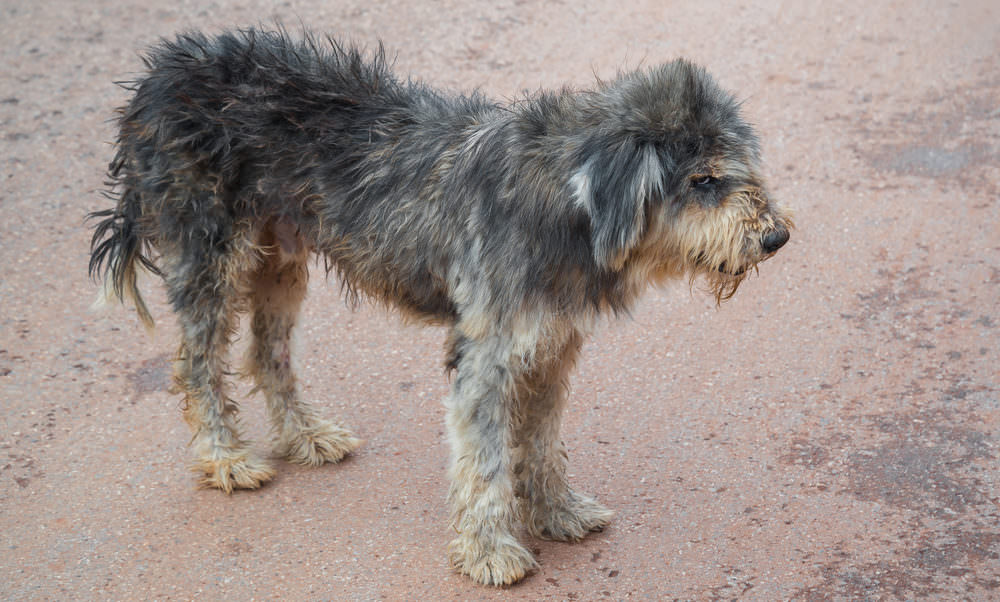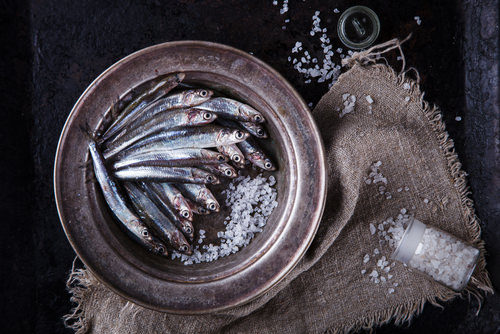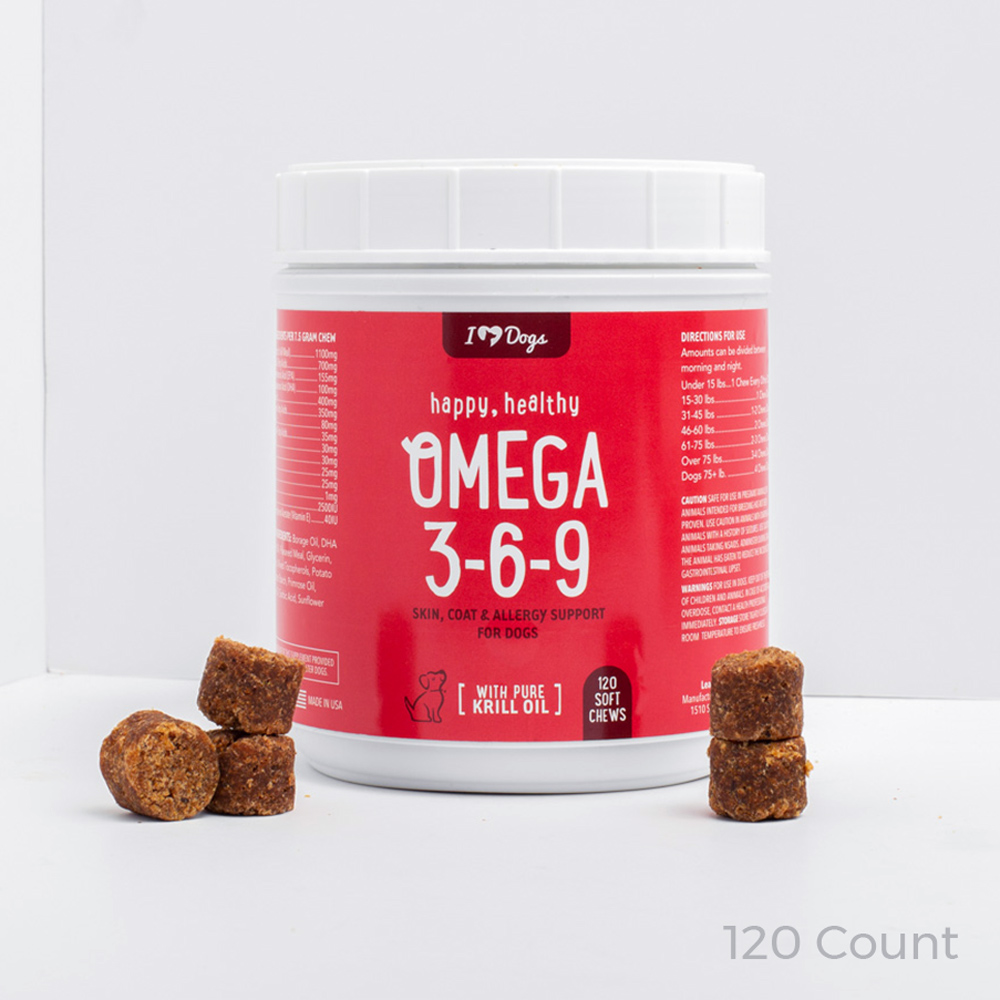
Do you feel that over time your dog’s coat has become dull or dry? You’re not alone, as many dog owners notice this trend as their dog ages or during the winter months.
What Is Causing My Dog’s Coat to Become Dry and Dull?
While there are many possible root causes for a dry coat, oftentimes diet is the main culprit. Despite the convenience of commercial dog food kibble, one of its major drawbacks lies the inability to retain the quality and potency of a vital nutrient: Omega Fatty Acids.
Known as essential fatty acids, a dog’s body is unable to produce Omega-3 and Omega-6 fats, and therefore they must be obtained through their diet (hence the name essential).
In recent years, science has begun to understand a myriad of benefits from essential fatty acids. According to Dr. Steve Marsden, DVM, writing for VCA, “Fatty acid supplements can reduce shedding, promote growth of the undercoat, reduce tendencies to inflammation and help resolve inflammation.”
Many Dog Foods Claim To Contain Omega Fatty Acids, But Don’t
While many dog foods claim to contain Omega fatty acids, they often cannot survive the tremendous heat and pressure required to produce dog food kibble, and therefore are not biologically available to your dog. Even if they do survive manufacturing, they have the tendency to become rancid in the dog’s food before they are consumed. For this reason, many turn to other options besides commercial dog food for supplementing their dog’s needs.
Even if they do survive manufacturing, they have the tendency to become rancid in the dog’s food before they are consumed. For this reason, many turn to other options besides commercial dog food for supplementing their dog’s needs.
Simple Ways to Integrate Essential Fatty Acids Into Your Dog’s Daily Diet
Adding fresh fish to your dog’s diet is a fantastic way of boosting their intake of high quality omega fatty acids. Many veterinarians recommend adding fish 2-3 times per week.
Another option growing in popularity is switching to a raw diet or prey model diet.
Some owners find adding fresh fish or raw foods time-consuming and expensive, and as a result the use of omega fatty acid supplements have grown in popularity in recent years.
How Do I Choose a Quality Omega 3-6-9 Supplement?
One of the most popular supplements for many dog owners is pure salmon oil. While salmon oil has its benefits, we tend to lean towards fish sources lower on the food chain (like krill or anchovies), and therefore are less prone to the accumulation of heavy metals like mercury in the fish.
Many pet owners are also turning to omega soft chews due to their palatability, and the ability to supplement other nutrients that also benefit the skin and coat.
In addition to diet, there are many other methods of controlling your dog’s shedding. Be sure you brush your dog regularly, bathe them enough (but not too much) and use flea prevention.
Remember, shedding in itself is not a health problem, but excessive shedding might be a sign of more serious issues at play. Be sure to consult your vet about your dog’s shedding issues. There may be other issues at hand such as high stress, immune problems, hormonal imbalances, fungal infections, or parasites.
Learn More About Supplementing Your Dog’s Diet with Our Happy, Healthy Omega 3-6-9 Select Soft Chews
These statements have not been evaluated by the Food and Drug Administration. This product is not intended to diagnose, treat, cure, or prevent any disease. The information on this website is not intended to replace a one-on-one relationship with a qualified health care professional.

 Toledo, United States.
Toledo, United States.